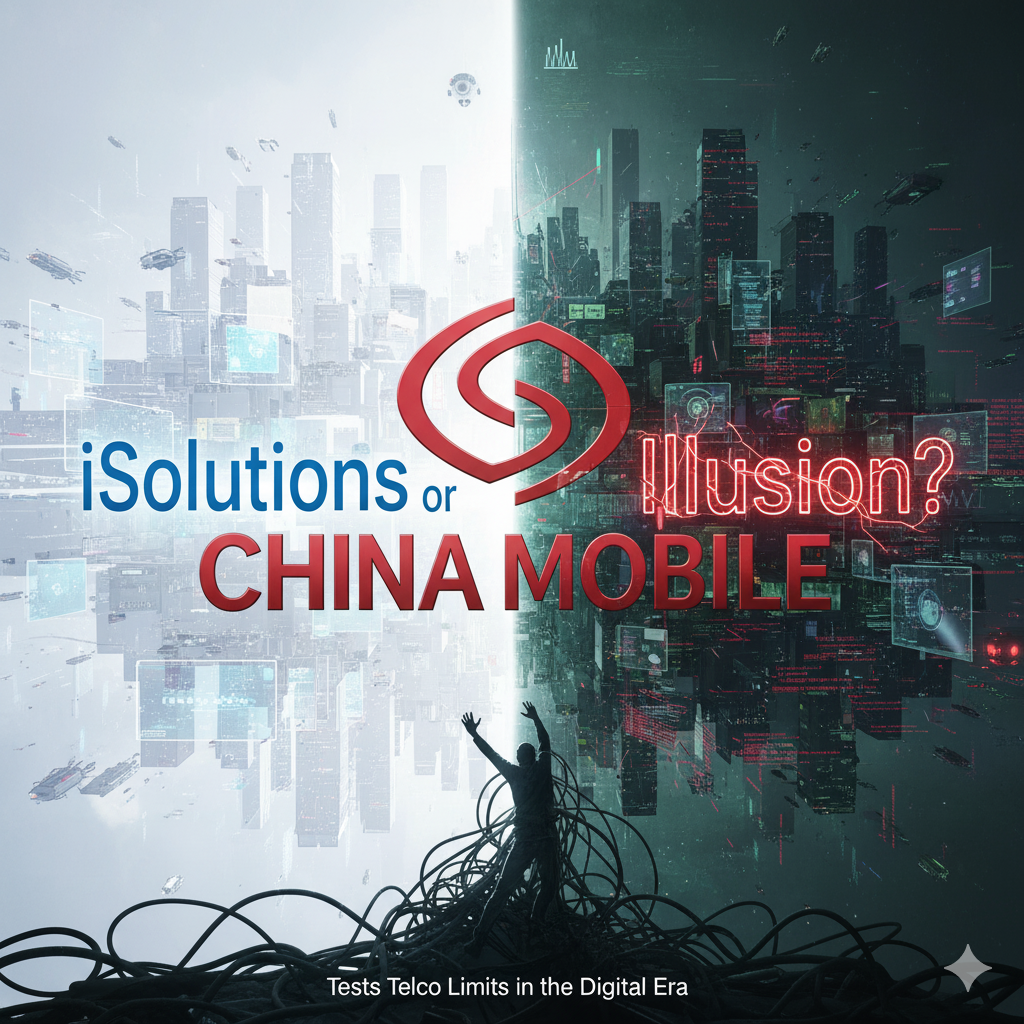iSolutions or Illusion? China Mobile Tests Telco Limits in the Digital Era
China Mobile (0941.HK) is pushing iSolutions, a one-stop enterprise digital bundle built on its subsea cables and global PoPs. Can a telco challenge hyper-scalers like AMZN, MSFT, GOOGL, and 9988.HK? Execution, regulation, and margin pressure will decide if this pivot is disruption or branding.

China Mobile’s launch of iSolutions, a one-stop digital services package for enterprises, is less a simple product release than a signal of where the telco intends to compete in the global digital economy. By bundling 5G connectivity, cloud, AI, IoT, and security services, the company is betting it can leverage its infrastructure scale to compete with hyperscalers and integrated ICT providers abroad.
At face value, the pitch is compelling. China Mobile International boasts 145 terabits of international transmission capacity and more than 230 global points of presence, anchoring data centers and subsea cables such as its stake in 2Africa. Infrastructure ownership gives it a built-in advantage in bandwidth control, latency management, and compliance — selling not just compute and storage, but network-native integration. The showcased European “smart port” using private 5G, drones, and AI-enabled container recognition illustrates how such integration might differentiate iSolutions from piecemeal vendor models.
But whether this model is defensible depends on competitive positioning. Global hyperscalers like Amazon Web Services (AMZN), Microsoft Azure (MSFT), and Google Cloud (GOOGL) dominate enterprise digital services, offering broader ecosystems, developer tools, and partner networks. Closer to home, Alibaba Cloud (9988.HK) and Tencent Cloud (0700.HK) are already pursuing global clients with aggressive pricing. Telcos in other regions, including AT&T (T) and Verizon (VZ) in the U.S. and Deutsche Telekom (DTE.DE) in Europe, have largely struggled to scale beyond connectivity when competing with hyperscalers. China Mobile believes its integrated infrastructure — especially subsea capacity and data sovereignty guarantees — can bridge that gap.
Financially, China Mobile (0941.HK) reported 2024 revenues of RMB 848 billion (~$117 billion), with data services contributing more than half. The transition to higher-margin enterprise ICT is attractive: global cloud services grew at ~20% CAGR, compared with low-single-digit growth in traditional mobile. But investors must ask: can China Mobile compete on innovation cycles, developer ecosystems, and user experience? Telcos historically carry heavy capex burdens, and integration complexity can erode margins. Without strong software partnerships, iSolutions risks being a packaging exercise more than a true ecosystem play.
Risks also extend to regulation. Data sovereignty laws in Europe, the Middle East, and Africa may limit China Mobile’s ability to centralize services. Geopolitical pushback on Chinese telecom infrastructure, already evident in the 5G equipment space, could extend into enterprise ICT. Building trust will require not just infrastructure, but transparent governance, security certifications, and partnerships with local firms.
Still, iSolutions reflects a strategic inevitability: as connectivity margins compress, telecom incumbents must climb the value chain into digital platforms. For China Mobile, the overseas ambition is clear — shift from a domestic subscription utility into a global digital services provider. If executed, this could unlock new revenue pools and raise investor sentiment around its enterprise business, helping re-rate the stock relative to slower-growing telcos.
For now, iSolutions is a bold showcase, not yet a scale driver. The real test will be whether enterprise clients abroad see value in China Mobile’s integrated approach, and whether investors believe the company can narrow the gap with hyper-scalers while defending margins. Until then, 0941.HK remains more of a dividend play than a cloud-era growth stock.





